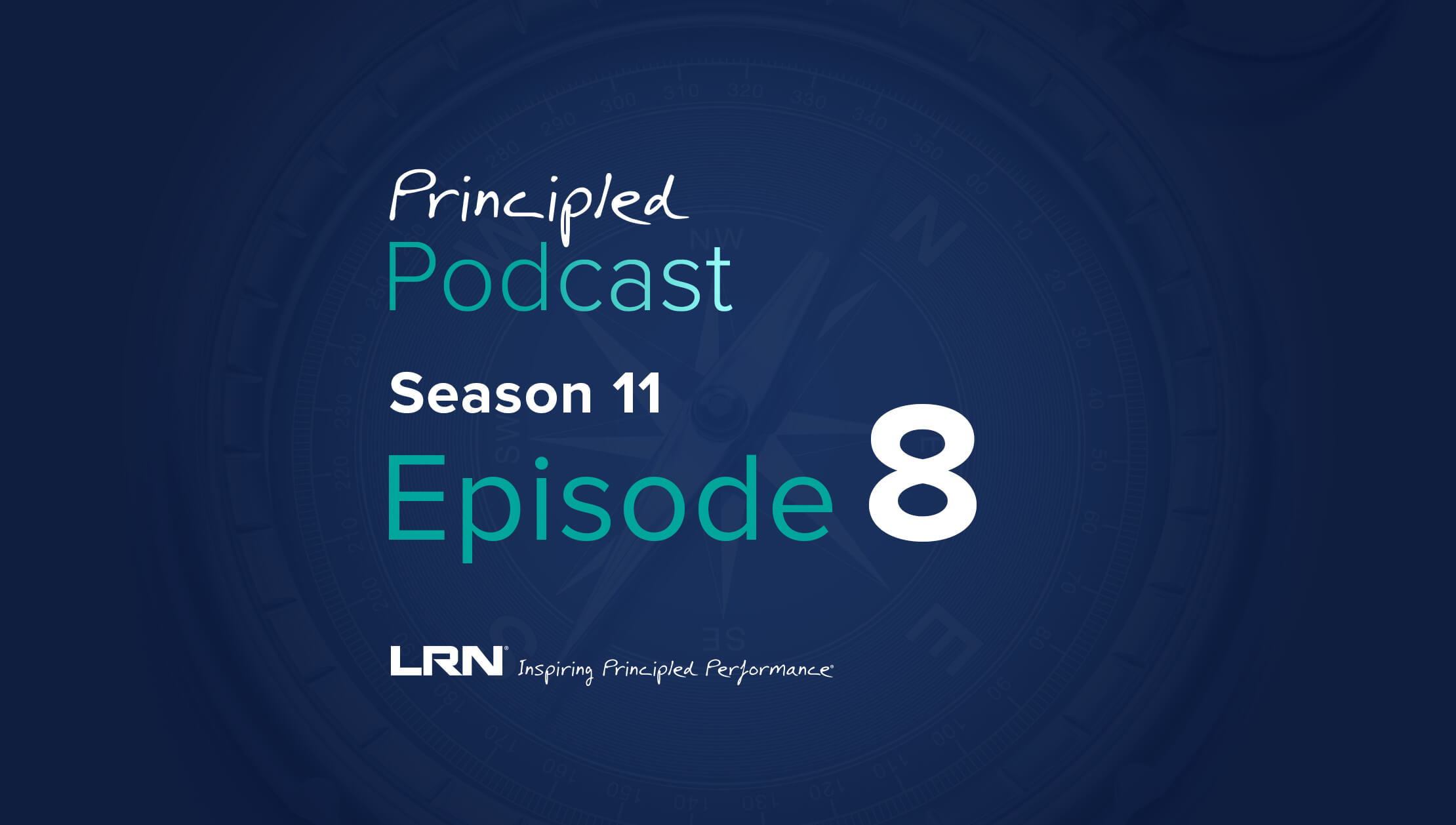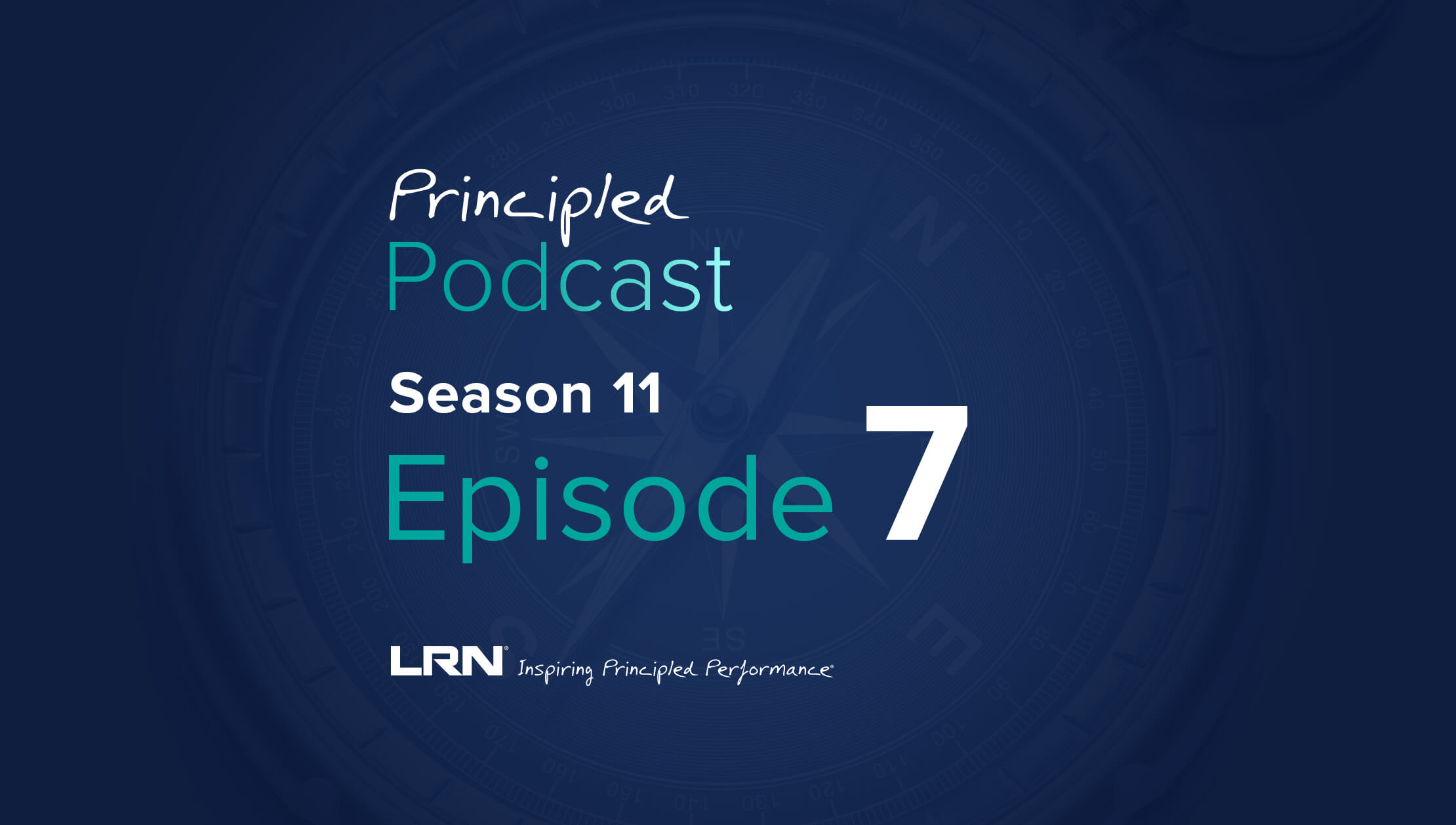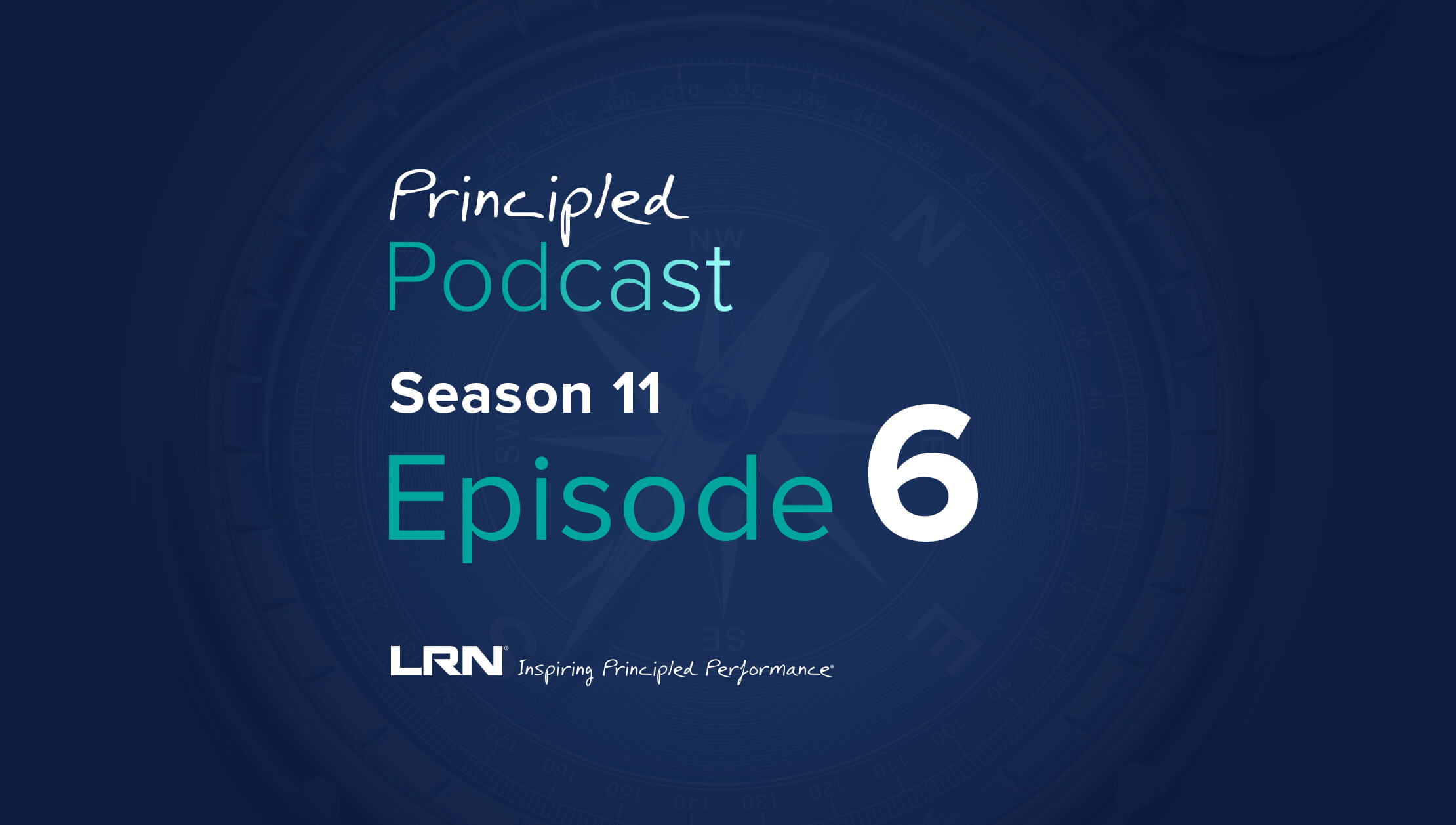The 21st Annual Compliance & Ethics Institute from SCCE explored a wide range of pressing issues, from data privacy and ESG to culture change and board engagement. What stood out to compliance professionals this year, and what do they anticipate next? This was the key question in a recent LRN webinar recapping SCCE CEI. The discussion was moderated by Eric Morehead, director of Advisory Services at LRN, and featured a distinguished panel of compliance and ethics experts:
- Adam Balfour: VP and General Counsel for Corporate Compliance and VP for Global Risk Management at Bridgestone Americas
- Lisa Beth Lentini Walker: Assistant General Counsel at Marqeta; Founder of Lumen Worldwide Endeavors; Board member of SCCE
3 thought-provoking topics from SCCE CEI 2022
The trio unpacked the top compliance issues addressed during SCCE CEI sessions and within the community of E&C leaders. They also shared their thoughts on emerging ethics and compliance trends as well as the latest best practices shaping compliance programs’ influence on corporate culture. Here are three interesting takeaways from the discussion. (You can also watch the full webinar at this link.)
Putting people back at the center of ethics and compliance
Balfour was struck by the growing number of personal, human stories from this year’s SCCE speakers compared to last year. The theme of most discussions, he noted, dealt with the importance of self-care and wellbeing—and how compliance teams can help promote these ideas in the workplace moving forward. “We are not in the rules business, which has been the terrible branding of E&C,” commented Balfour. “We’re in the people business. And people have been through incredibly challenging years lately.” Ultimately, ethics and compliance teams should look to 2023 as an opportunity to put people back at the center of programs.
Lentini Walker followed up by discussing how the opening keynote from Harvard Medical School helped set the right tone for the remaining sessions, emphasizing that if compliance leaders are asking employees to work at their ethical best, they have to make sure employees have the support they need. “We’re in a period of time—at least in US—where productivity is going down for the first time in a very long time,” said Lentini Walker. “How do we make working a safe, comfortable, and predictable place? E&C has a role in figuring that out.” The key for organizations, she concluded, is to “keep it human and keep it humane” when it comes to developing and communicating company policies.
Morehead agreed, saying that there should be a recognition among organizations that business is not going back to the way things were before 2020, at least in certain regards. In order for compliance professionals to effectively work in their organizations, he argued, there must be a balancing of perspectives and expectations. Creating a compliance program for in-person and remote workers, he concluded, is more than technical adjustment: it’s a holistic one. “Things have changed fundamentally with office life, and E&C has to navigate that like everyone else.”
The evolution of ESG conversations and the compliance connection
The panelists noticed that the topic of environmental, social, and governance (ESG) efforts was more channeled at SCCE CEI this year compared to last year. Sessions covering ESG provided more practical content than the blue-sky sessions of 2021, though the question of whether compliance teams should “own” ESG remained a constant from last year. Balfour commented that while people in compliance can cover parts of ESG, he doesn't believe E&C teams should be responsible for all of it.
“I fear that ESG is getting added to an already packed agenda,” replied Morehead. “Maybe [compliance owns] the governance piece.” In the end, he concluded, it depends on the size of the E&C team and its resources. “A small organization with a low FTE won’t be able to properly manage ESG.”
Lentini Walker noted that the maturation of ESG has been similar to maturation of compliance in wider business discussion. She noted that increased regulation and the enforcement of ESG is generating more tactical, practical discussions—but the current regulatory approach might cause delays in future outcomes.
Virtual component to compliance sessions could last in the world of remote work
With the possibility of a recession shrinking travel budgets and the reality of COVID-19's impact on the surge in remote work, the panelists agreed that having virtual outlets to compliance events like SCCE CEI would likely be a long-term trend. Lentini Walker was quick to comment that the mix of in-person and virtual versions of the conference provided a good representation of the type of experience, discussions, and professionalism in the ethics and compliance field. Morehead was also pleasantly surprised that the virtual component to sessions was well attended. While an estimated 2:1 of SCCE CEI attendees went to sessions in person, but roughly 10% virtual attendance was certainly not insignificant.
Another positive was that virtual sessions gave attendees more choice over how to consume information. “Even with being in Phoenix [for SCCE],” Lentini Walker said, “I attended some sessions virtually due to being on-call for work.”
The key takeaway
Overall, panelists agreed that the development and delivery of key compliance topics appear to be trending in the right direction—and are worth keeping top-of-mind as E&C teams think about their program strategies for 2023. You can watch the full webinar discussion here for more insights.
To learn more about the latest best practices in ethics and compliance, check out our collection of practical tools for building an effective program.



